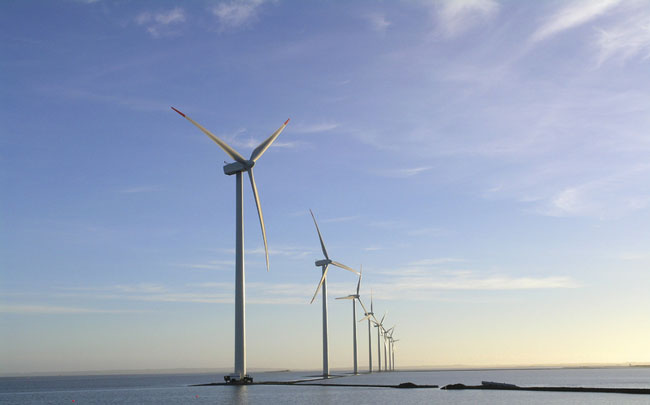Americans Willing to Pay for Global Warming Remedies

Nearly three-quarters of Americans are willing to pay more taxes to support local government efforts aimed at mitigating global warming, according to the findings of two recent national surveys conducted by Yale University.
Americans were willing to pay more money in property taxes, home costs and utility fees to support initiatives that would encourage people to use less energy and get that energy from alternative sources, the surveys showed. They follow other polls that have found concern for the environment is growing among Americans and bolder action is desired.
A poll conducted by the Associated Press and Stanford University last month found that Americans are pessimistic about the current state of the environment and disapprove of how the government has been handling environmental issues.
Another national Yale poll conducted in July found that a majority of Americans believe that society must take action to reduce the effects of global warming, partly by enacting a new national treaty that would require much more drastic reductions in carbon dioxide than those required by the Kyoto Protocol (which the United States never ratified). This earlier poll also showed that about 50 percent of Americans say they are personally worried about global warming.
"Nearly half of Americans now believe that global warming is either already having dangerous impacts on people around the world or will in the next 10 years—a 20 percentage-point increase since 2004. These results indicate a sea change in public opinion," said Anthony Leiserowitz, director of Yale Project on Climate Change, in response to the findings of the earlier poll.
The results of the new surveys found that this worry has seemed to translate into willingness to take action:
- 74 percent of those surveyed would support local regulations requiring all newly constructed homes to be more energy efficient, even if it would increase the initial cost of the new home.
- 72 percent of respondents said they would support local subsidies aimed at encouraging homeowners to install solar panels on their homes, even if it would increase property taxes, because of potential savings in energy and utility bills.
- 71 percent would pay higher property taxes to support local subsidies aimed at replacing old furnaces, water heaters, air conditioners, light bulbs and insulation.
- 69 percent would pay higher taxes to require utilities to produce 20 percent of electricity through renewable energy sources.
- 68 percent would approve changing local zoning rules to decrease sprawl.
- and 53 percent would support fees on electricity bills aimed at encouraging people to use less electricity.
“City and local leaders are critical players in the effort to reduce global warming, and it’s clear that their constituents want action,” Leiserowitz said. “The public is on board and willing to help foot the bill. All that’s left to do now is act.”
Sign up for the Live Science daily newsletter now
Get the world’s most fascinating discoveries delivered straight to your inbox.
On the other hand, the results, culled from two national telephone surveys conducted in September, showed that most of those surveyed were unwilling to change zoning rules to encourage apartment buildings over single-family homes or support local fees on gas to promote less fuel consumption. (However, the earlier Yale study found that people were willing to pay more to require auto manufacturers to make more fuel efficient cars, trucks and SUVs.)
The results of these latest surveys stand in stark contrast to some conducted just a year ago. A 2006 poll conducted by ABC News, Time, Stanford University and Ohio State University found that only 3 in 10 Americans thought that global warming is caused by humans and less than 40 percent thought it was an immediate threat.
- 10 Ways to Green Your Home
- What's Your Environmental Footprint?
- 10 Ways to Green Your Spending

Andrea Thompson is an associate editor at Scientific American, where she covers sustainability, energy and the environment. Prior to that, she was a senior writer covering climate science at Climate Central and a reporter and editor at Live Science, where she primarily covered Earth science and the environment. She holds a graduate degree in science health and environmental reporting from New York University, as well as a bachelor of science and and masters of science in atmospheric chemistry from the Georgia Institute of Technology.









